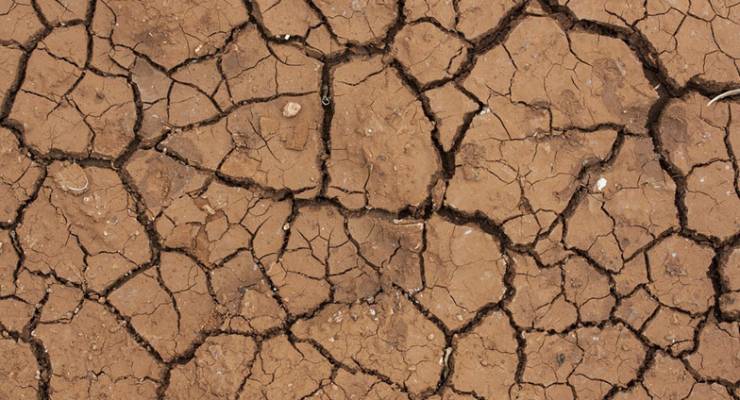
Not all State of the Union speeches are created equal. Fifty-seven years ago, in his first SOTU address, a young and largely untested President John F. Kennedy implored the United States’ mortal enemy, the Soviet Union, to join Americans in their quest to send probes to Mars and Venus — missions that might “someday unlock the deepest secrets of the universe”.
While the Soviets declined the invitation and the Cold War carried on, previously unimagined secrets of the universe were indeed unlocked, during Kennedy’s tenure and after. As a generation, we now occupy a completely different world of knowledge to JFK, and our parents and grandparents.
In a time of such great upheaval, when the current US president is focused almost entirely on the individual, it’s quite something to be prompted to consider our own consciousness, and the consciousness of our fellow humans, as “the universe reflecting on itself”. But sitting in the cinder-block community room at Albertus Magnus College — a short way up the road from Yale but metaphorically occupying another solar system altogether — surrounded by Dominican nuns, professors and graduate students, I was prompted to do just that.
Speaking to this captivated audience last week, Dr Mary Evelyn Tucker argued that the foundational ideals of the United States — life, liberty and the pursuit of happiness — are grounded in an individualism that is totally inadequate for our current predicament.
[Yale Diary: the role of historians in Trump’s America]
Our place, our planet, is in grave peril, and not just because Trump is threatening us, once again, with nuclear annihilation. We are in the midst of a sixth extinction. The last one happened 65 million years ago, and was caused by an asteroid. This time, it’s caused by us. We can, as Tucker outlined, stem the tide of that destruction, but we can’t reverse it.
Tucker and her husband, John Grim, are pioneers in the field of religion and ecology. Tucker and Grim founded the Forum on Religion and Ecology at Yale. The forum is based on the premise that religions need to be in dialogue with other disciplines like science, economics, education, and public policy, in seeking comprehensive solutions to both global and local environmental problems.
Those environmental problems and the burning question of how to address them were what led Tucker, Grim, and their colleague, evolutionary philosopher Brian Swimme, to create Journey of the Universe: a book, an Emmy-award winning film, a conversation series of 20 interviews with scientists and environmentalists, and online classes.
Journey of the Universe sees human beings as mythmakers and seekers of meaning. Our existing stories – religious and otherwise – have proven an inadequate framework for both the explosion in scientific knowledge that has occurred in our lifetimes, and for addressing impending, planetary-scale catastrophe. We need a new story, one based in the marriage of science and the humanities; one that can help us consider our place in the universe. Journey is an awe-inspiring attempt to do just that: to find meaning and belonging in the epic of evolution.
[Yale Diary: on the nauseating carousel of US bipartisanship]
It’s all too easy, faced with the sheer magnitude of the problems at hand, and especially when the leader of the so-called free world regards our planet as one giant, beautiful coal mine, to fall into despair. Tucker and her work, however, remind us that if you scratch just a little below the surface, there is a “generosity of spirit” in which we can find cause for hope. A reminder, if you will, that many are in the midst of deeply considering not the state of the union, but the state of the planet.
Journey suggests that we can, indeed we must, revise the role of humans on this planet and find our place in a new story. Though it’s not reported on, and it’s incredibly difficult to gauge, Tucker insists that we are in the midst of such a revision. Scientific understanding of our place in the universe, indeed the fact that we exist at all, is proof, as Tucker put it, that “we belong here. We’ve always belonged here.” Perhaps knowing that, and living it, could show us a new way forward.
To return to Kennedy’s 1961 State of the Union: “… nature makes natural allies of us all.”







Crikey does SMH – Advertorial.
I just clicked on the link. Your right, straight to an ad for a course in what looks like an acid trip.
Crikey, can you please piss off with this weird shit? It gives me a hangover.
God save us from religious thinkers. The fact that we exist does not prove that we belong here. That argument has been debunked by science and simple clear thinking. Religion also got Trump elected. Perhaps they ought to address the idiocy in their own ranks before instructing the rest of us.
I think initiatives like this one are trying to address the idiocy, Dan. Something like two thirds of humanity are religious, and of those two thirds, most are members of the monotheistic Abrahamic religions- all extremely anthropocentric. If we can’t turn their thinking around on our place in the scheme of things, we’re all fucked, and secularists can’t really reach them, only other people of Abrahamic faiths can.
But is it correct? “We can . . . . stem the tide of that destruction, but we can’t reverse it.”
If it is so . . . why in hell do we still tolerating political and corporate greed unto destruction?
Birth control? Abortion?